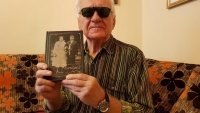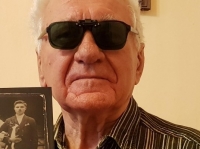Nationality cannot be changed

Download image
Melchior Sikora was born on January 24, 1937 in Poland near Wadowice. He grew up only with his mother and brothers. In June 1939, the family moved to Fryštát (today’s Karviná) in the then Polish Těšín region. In the next three months, war broke out and the territory was occupied by the German army. During the Nazi occupation within the so-called Volkslist, the Sikors declared their Polish nationality and their mother ended up in prison. Melchior trained as a metallurgist and worked as a miner from 1961 to 1985. In 1978, he traveled to England with his uncle. In 2021 he lived in Karviná.

